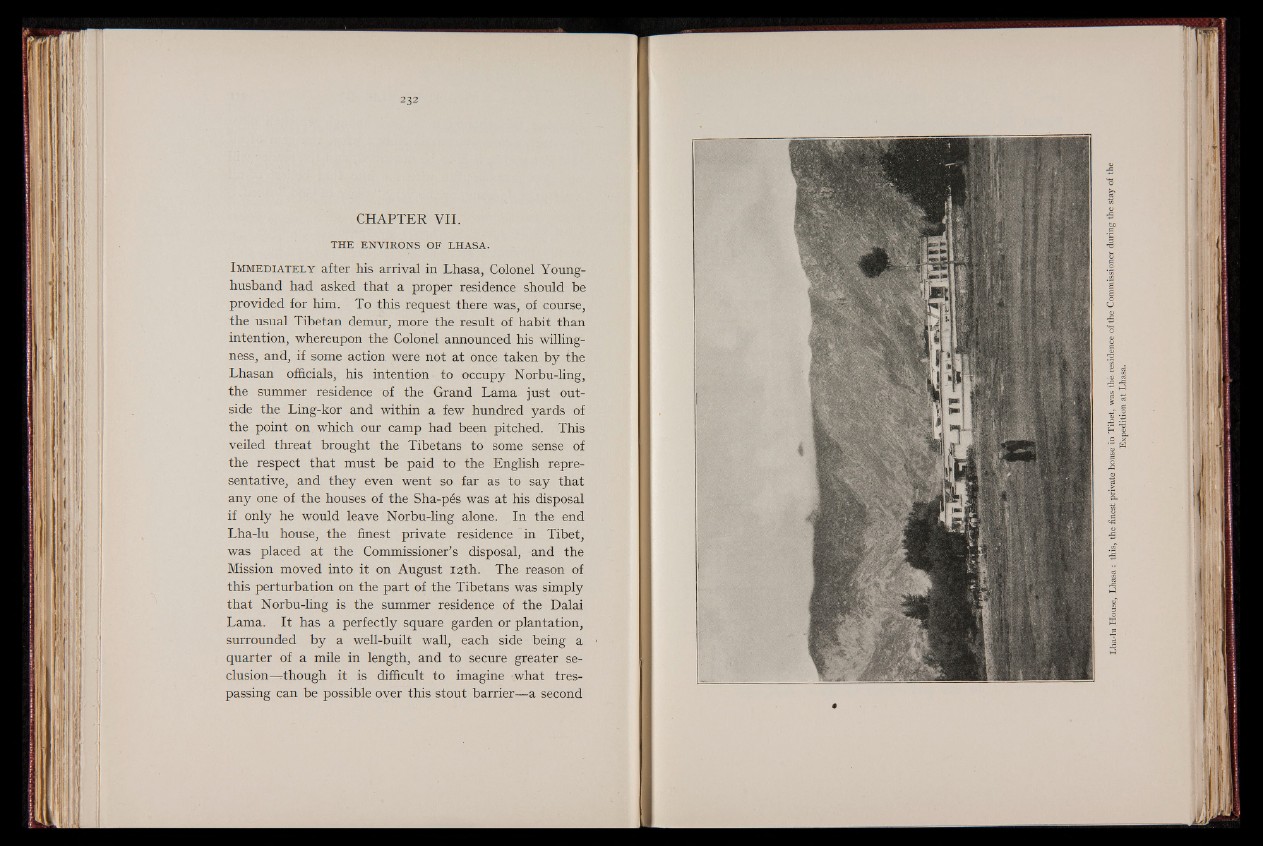
CHAPTER VII.
THE ENVIRONS OF LHASA.
I m m e d i a t e l y after his arrival in Lhasa, Colonel Young-
husband had asked that a proper residence should be
provided for him. To this request there was, of course,
the usual Tibetan demur, more the result of habit than
intention, whereupon the Colonel announced his willingness,
and, if some action were not at once taken by the
Lhasan officials, his intention to occupy Norbu-ling,
the summer residence of the Grand Lama just outside
the Ling-kor and within a few hundred yards of
the point on which our camp had been pitched. This
veiled threat brought the Tibetans to some sense of
the respect that must be paid to the English representative,
and they even went so far as to say that
any one of the houses of the Sha-pes was at his disposal
if only he would leave Norbu-ling alone. In the end
Lha-lu house, the finest private residence in Tibet,
was placed at the Commissioner’s disposal, and the
Mission moved into it on August 12th. The reason of
this perturbation on the part of the Tibetans was simply
that Norbu-ling is the summer residence of the Dalai
Lama. It has a perfectly square garden or plantation,
surrounded by a well-built wall, each side being a
quarter of a mile in length, and to secure greater seclusion—
though it is difficult to imagine what trespassing
can be possible over this stout barrier— a second